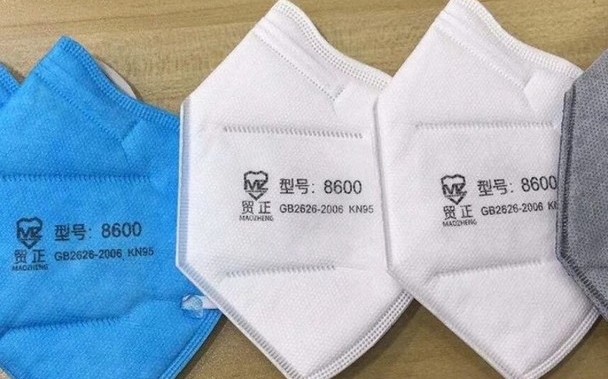KN95 mask made in China. (Schematic diagram) Picture: flipping Weibo
–
–
Wuhan pneumonia is damaging the world. China, the first outbreak of the epidemic, continues to increase exports of anti-epidemic products, but news of poor quality continues. Chinese-made masks have been listed as “serious” warning products by the European Union. Many countries have complained that they cannot provide effective products. Protection has greatly increased the risk of infection for many medical staff who have to wear masks made in China. A French news website reported on the 22nd that doubts about China’s KN95 masks have resurfaced. Many medical staff reported that the KN95 masks sent by the government are not as effective as the European standard FFP2 medical masks. Many local hospitals have decided to stop using Chinese-made KN95 masks. Medical staff believe that these masks may be related to cluster infections in the hospital.
The French investigative news website Mediapart reported that many hospitals have decided to stop using KN95 under the title “In hospitals, Chinese KN95 masks cause concerns.” The content mentioned that the French government purchased a large number of KN95 masks from China last spring due to a shortage of mask stocks, and these masks have been sent to hospitals in large numbers recently. A public hospital in the French coastal town of Hendaye received a batch of KN95 masks in mid-January. A representative of the Solidarity and Public Health Union (SUD-Sante) of the hospital said: “We immediately felt that the face was not right. 15 days after the mask arrived, 20 people were diagnosed with Covid-19! The hospital decided not to use it in February. KN95, because the ears are too loose, etc.”
The Federation of Surgery (Collectif Inter-Blocs, CIB) and the Federation of Emergency Centers (Inter-Urgences, IU) publicly published a French national consultation report in February. The report found that the use of KN95 masks in China may be associated with cluster infections in hospitals. Associated. The hospital has had cluster infections since the spring of last year. Although the epidemic prevention regulations have been complied with, the number of clusters in winter has doubled. Among the 447 questionnaires collected, more than 2/3 of the medical staff said they had used KN95. CIB spokesperson Gregory Chakir pointed out that it was “the words “non-medical” written on the package that made the medical staff take the initiative to remind the association.” He said: “Colleagues all over the country have the same problem when using KN95-masks cannot match all face shapes.”
According to the report of the Senate Epidemic Management Investigation Committee, the Ministry of Public Health was “forced to purchase 203 million KN95 masks at a high price” when it urgently needed 500 million FFP2 medical masks between February and March last year. Even though the FFP2 mask market has eased and the supply is sufficient, the report questioned, “The government has decided to continue to send KN95 masks to hospitals to empty the inventory, ignoring the emergence of more infectious variant viruses or the worsening of the cluster infection in hospitals. We should not be getting After sufficient FFP2 is available, should FFP2 be given priority to medical staff for use, and then KN95 should be sent to groups with a lower risk of infection?”
On March 17 last year, the French Ministry of Public Health (SPF) placed an order with BYD (BYD) headquartered in Shenzhen, China, originally hoping to purchase Chinese-made European-standard FFP2 medical masks. However, Mediapart’s investigation found that the Ministry of Public Health only required masks that “conform to European specifications” or “conform to Chinese KN95 equivalent specifications” in the contract; a week later, the two parties directly revised the contract and directly named KN95 masks. Inquired by legal media, the General Administration of Health (DGS) affiliated to the Ministry of Health only responded. According to an administrative order, the sending agency has the right to clear the inventory before March 1, 2021. An IU member sighed helplessly: “We guess that is why KN95 continues to be sent to hospitals in large numbers. The government wants to empty the inventory when it is still possible.”
However, other countries, including Spain, did not do this. After the supply of masks was sufficient, they immediately resumed the European specifications and ordered the ban on the sale of KN95 since October 1 last year. Many public health guidance units have stopped issuing KN95. And think that its effectiveness is not as good as FFP2. In addition to the different test items, details and standards, one of the reasons is the degree of fit between the KN95 and the face. Lepelletier, a professor at the Nantes Medical Center, told Mediapart that he had asked medical staff to try on the masks. After the try, he decided to return 100,000 KN95s sent by the Public Health Agency to the warehouse. The same problem also occurs in many European countries, such as Belgium or the Netherlands.
–
– .


